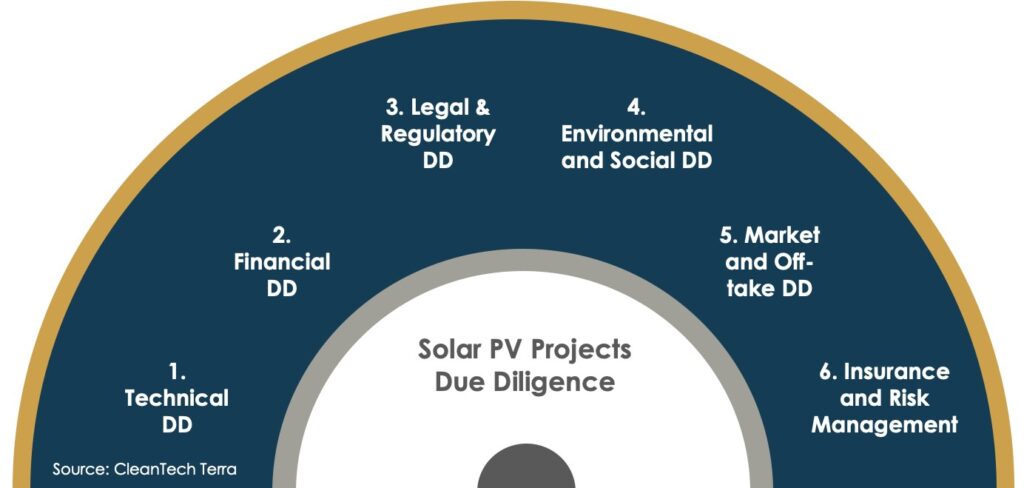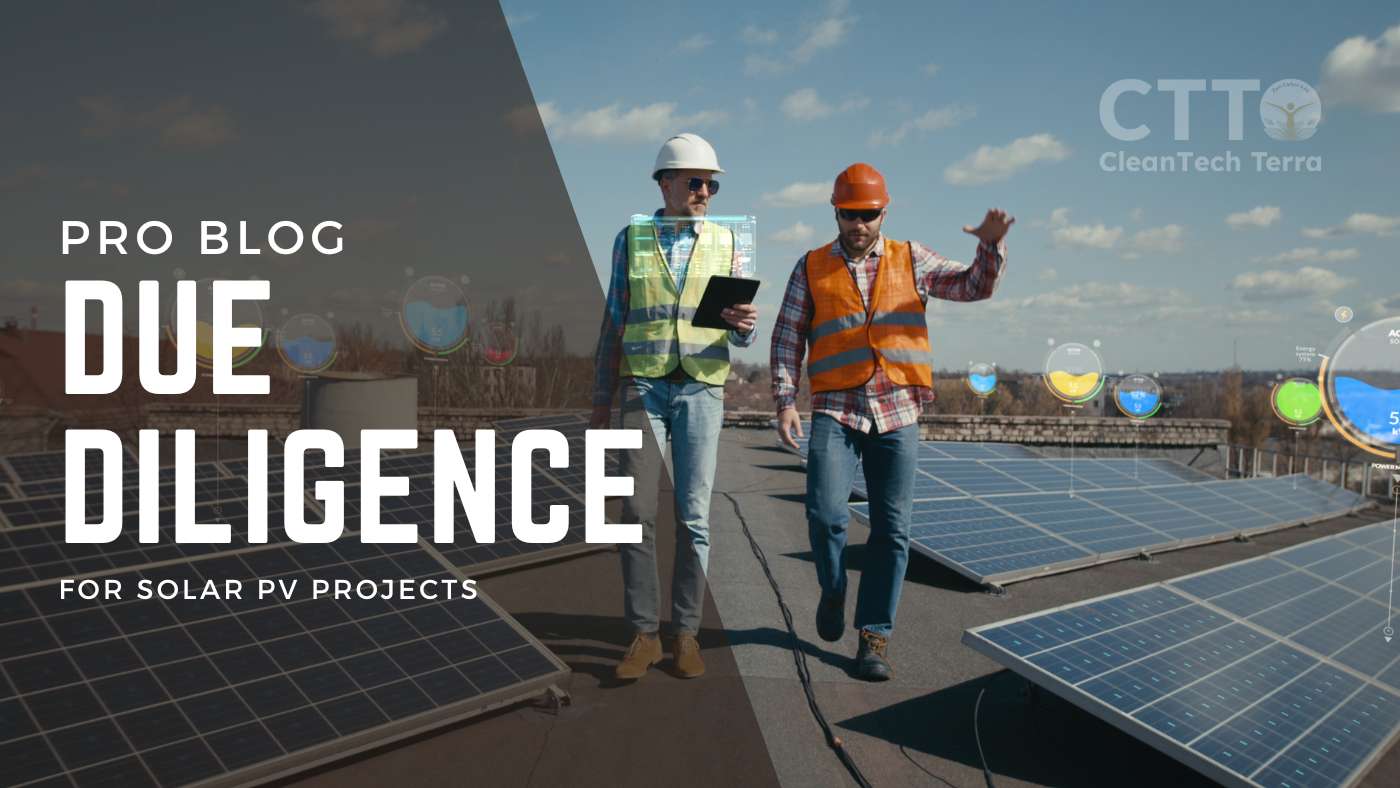Comprehensive Due Diligence for Solar PV Projects
Intro
Investing in Solar Photovoltaic (PV) projects is a significant venture that necessitates meticulous planning and analysis to guarantee long-term success and profitability. Conducting thorough due diligence is an essential step in this process, aimed at meticulously evaluating risks and substantiating the foundational assumptions of the project.

The due diligence process for solar PV projects encompasses several critical areas:
1. Technical Due Diligence
- Design and Technology Assessment: Examine the solar PV system’s design for compliance with standards and regulations, and ensure the technology and equipment, including solar panels and inverters, are of top quality and fit for purpose.
- Performance Assessment: Use tools like PVSyst to forecast energy output, comparing it with data from similar projects to validate performance expectations.
- Site Assessment: Analyze the site for solar resource, shading, and soil conditions, as well as access and infrastructure availability.
- Contract Review: Scrutinize contracts with suppliers, EPC contractors, and O&M providers, focusing on warranties and guarantees.
2. Financial Due Diligence
- Financial Model Validation: Confirm the accuracy of the financial model, including cost estimates, revenue projections, and financing terms, and evaluate its sensitivity to various external factors.
- Investment and Financing Assessment: Examine the financing structure, loan terms, and the financial stability of project sponsors and stakeholders.
3. Legal and Regulatory Due Diligence
- Permitting and Compliance: Ensure all necessary permits are obtained and regulations are met, including environmental and safety standards.
- Land Rights and Agreements: Verify land rights and scrutinize agreements with landowners and stakeholders.
4. Environmental and Social Due Diligence
- Environmental Impact Assessment (EIA): Review the EIA for compliance with environmental laws and assess the potential impact on local communities.
- Social Impact Assessment: Evaluate the project’s social implications, including job creation and community engagement.
5. Market & Off-take
- PPA Review: Analyze the terms of PPAs, the creditworthiness of off-takers, and market conditions affecting electricity prices.
6. Insurance and Risk Management
- Assess insurance coverage adequacy and risk management strategies to mitigate project risks.
Summary
Each aspect of due diligence in solar PV projects demands a collaborative, multidisciplinary approach, involving engineers, financial analysts, legal experts, and other specialists. This comprehensive evaluation provides investors, lenders, and stakeholders with a thorough understanding of the project’s risks and opportunities. It is a critical process that informs decision-making and significantly contributes to the project’s success.


